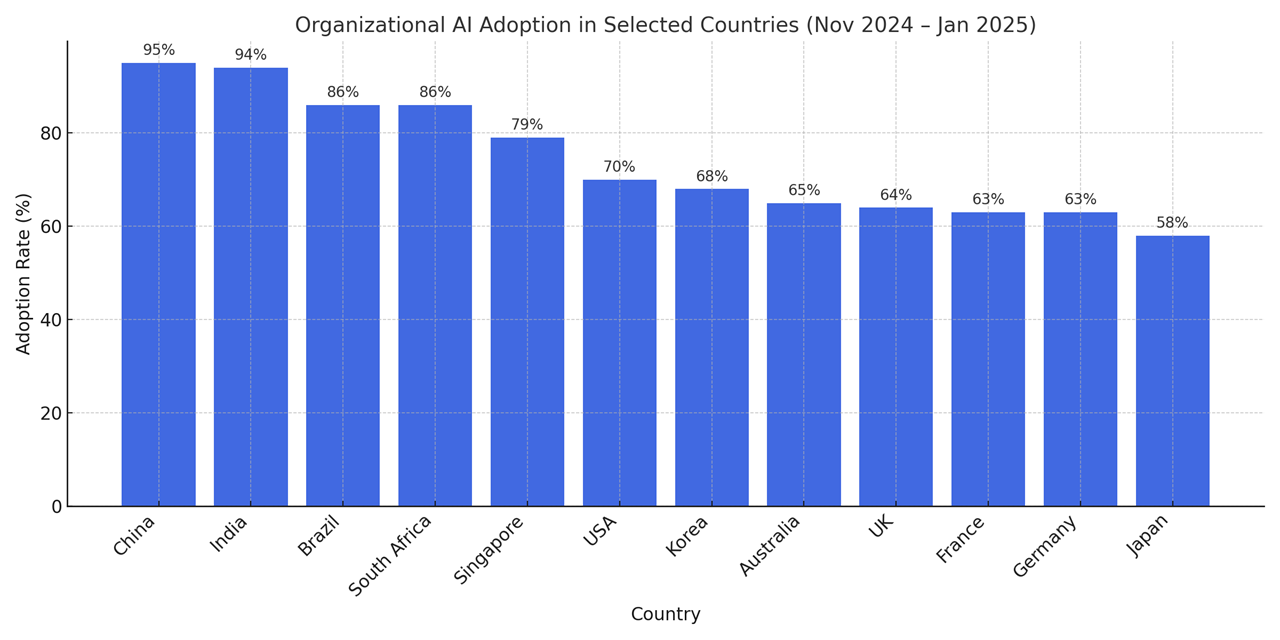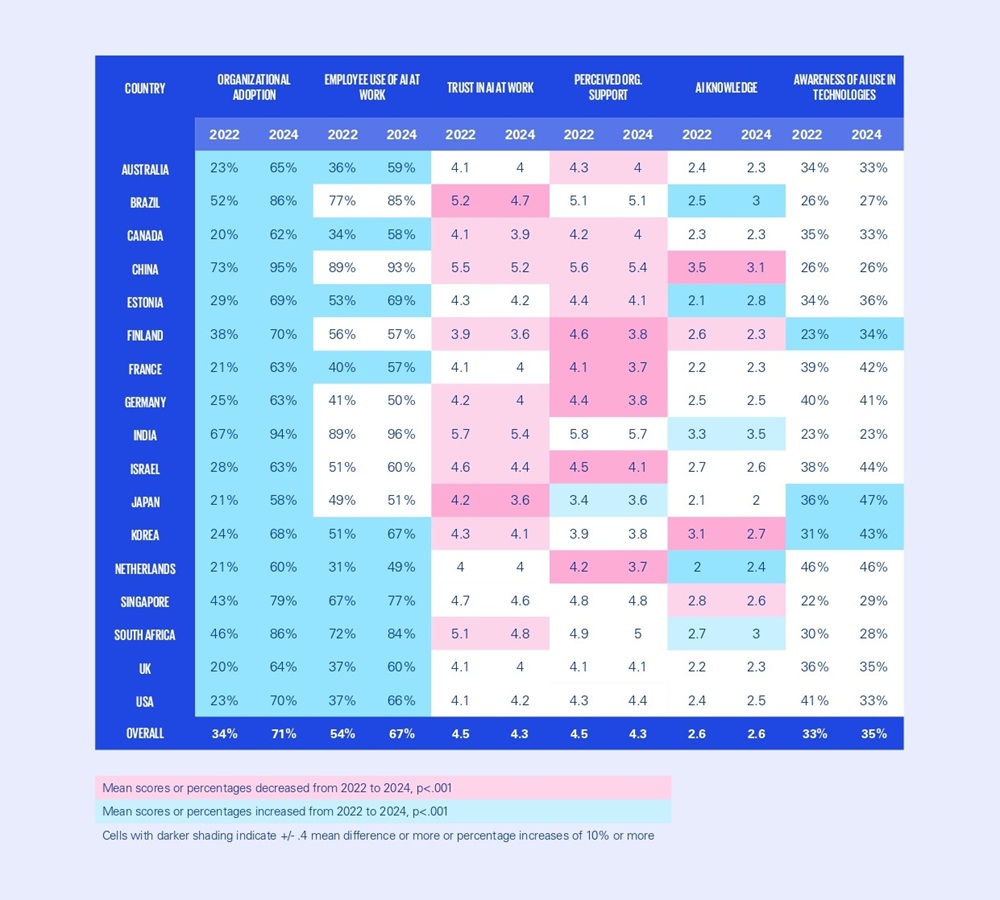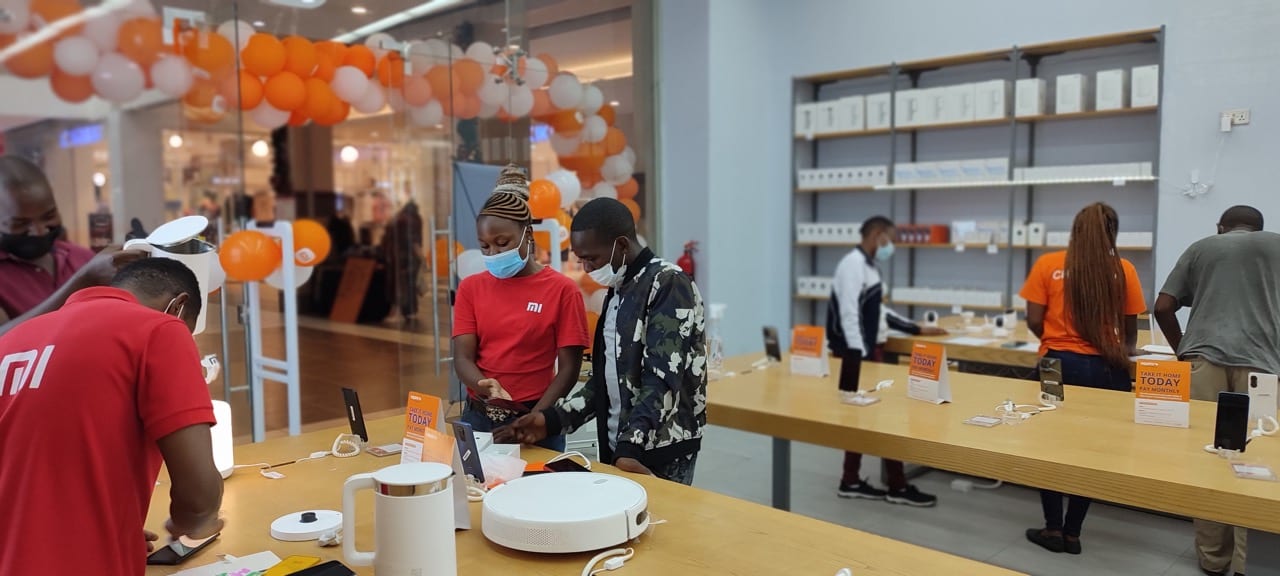
I have been diving into the “Trust, attitudes and use of artificial intelligence: A global study 2025,” and the insights on AI in the workplace are too good not to share. Especially when it shows our continent is, once again, making some serious moves.
If you’ve ever opened ChatGPT to save time drafting emails, relied on Grammarly to polish a report, or asked Gemini to summarize a client brief, congrats—you’re already riding the AI-at-work wave. According to a new global study by the University of Melbourne and KPMG that surveyed over 48,000 people across 47 countries from November 2024 to mid-January 2025, South Africa is among the top countries globally for organizational AI adoption. In fact, 86% of employees in South Africa and Brazil say their workplaces use AI tools, placing them ahead of tech giants like the U.S., UK, Germany, and Japan. However, China leads the way with a massive 95% adoption rate.

Here’s the rundown:
- China: 95%
- India: 94%
- Brazil: 86%
- South Africa: 86%
- Singapore: 79%
- US: 70%
- South Korea: 68%
- Australia: 65%
- UK: 64%
- France: 63%
- Germany: 63%
- Japan: 58%
Globally, nearly three in five employees (58%) are using AI at work regularly, with a third hitting it weekly. Generative AI tools like ChatGPT are the MVPs, often snatched up for free rather than from employers. Interestinyly, emerging economies are leading the charge, with 72% adoption compared to 49% in advanced ones.
South Africa’s 86% adoption rate, up from 46% in 2022, puts it right up there as the leader in Africa, just behind India and China. Nigeria and Egypt, though not on this chart, are part of that 72% emerging economy average, meaning their workplaces are buzzing with AI too. Offices in Johannesburg and Lagos have AI streamlining tasks, sparking innovation, and boosting revenue— over half of employees worldwide report these perks, and Africa’s riding that wave.
Here’s the full chart you need to see:

With Kenya’s tech scene heating up, we’re likely mirroring South Africa and Nigeria. Take Safaricom’s iX Africa Data Centres in Nairobi, launched this month, which are set to power AI-driven solutions with cutting-edge infrastructure—proof we’re gearing up. The PwC 2025 CEO report also flagged Kenya and East Africa as hotspots for tech growth, with CEOs betting big on AI by 2030.
We’ve even made AI a casual breakfast conversation. At the AI Kenya Breakfast Summit held on May 15th, 2025, industry leaders, developers, and policymakers converged to discuss AI governance, education, and workplace integration. It was clear that Kenyan workplaces are experimenting, deploying, and scaling AI across sectors—from HR and finance to agriculture and health.
All of this is in line with what the KPMG/Melbourne study found: most employees use AI tools to improve efficiency, get better insights, and innovate faster. But the study also exposed some dangers.
While AI is clearly powering up productivity, the study reveals that many employees aren’t using it responsibly. Over half of employees globally report mixed impacts, like heavier workloads or less human collaboration. In Africa, where adoption is sky-high, there’s a flip side too, where many worry AI might snatch jobs, and others admit to using it in ways that break company rules (e.g., uploading sensitive data to public tools). Furthermore, only half of employees in advanced economies get training for responsible AI use, and it’s likely even less in emerging ones like ours. But events like the AI Kenya Breakfast Summit are pushing for responsible AI adoption, urging local leaders to step up training.
So, if you’ve ever pasted internal sales reports into a prompt to “make this sound professional,” you’re part of the grey area too. But I don’t think the real issue is that people use AI. It’s that organizations haven’t caught up with clear policies and training.
As highlighted in the Caribou and Genesis Analytics report, Africa has a golden opportunity to lead in human-centered AI—but it requires intentional upskilling, governance, and local innovation. The tools are here. The talent is here. But the question remains: Are we preparing our workforce to engage critically and safely with AI?





